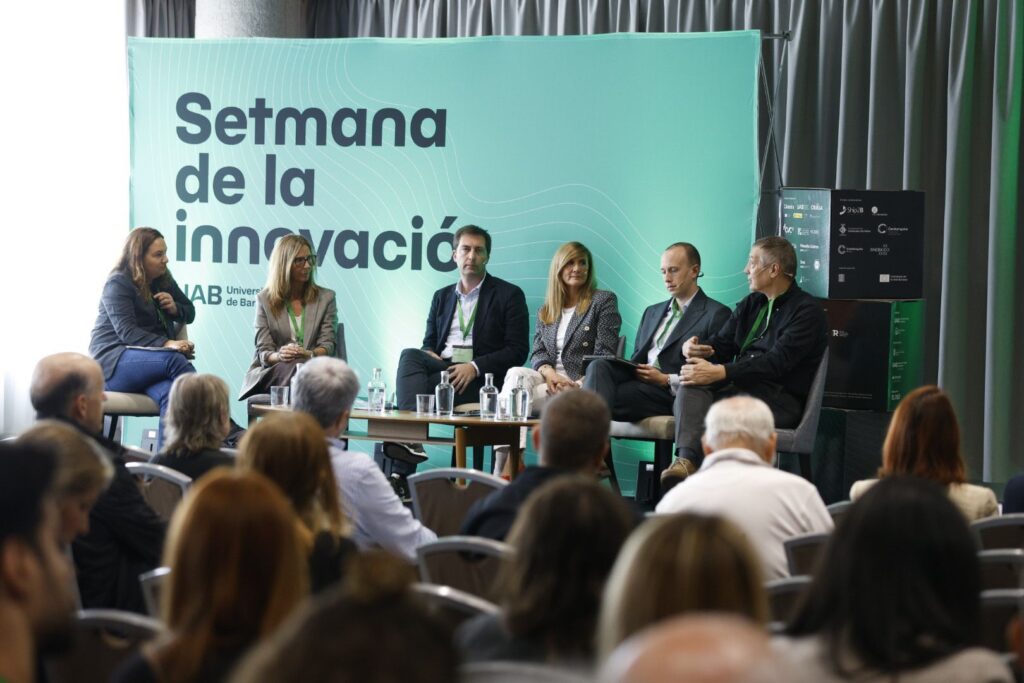As part of Innovation Week at the Autonomous University of Barcelona (UAB), Sílvia Martí, Corporate Vice-President of Moventia, took part in the round table discussion entitled “Mobility and Sustainability” on the Bellaterra campus. The event gathered experts from the sector to discuss the crucial role of efficient and sustainable mobility in modern cities, a priority issue for Moventia. Sílvia was accompanied by Xavier Gabarrell, Vice Rector for Campus and Sustainability at the UAB; Cristina Güell, Head of Corporate Services at TMB; Óscar Julià, Head of Innovation at Sener; and Oliver Canosa, Corporate Strategy & Sustainability Manager at Tradebe.
In her talk, Sílvia Martí underlined the importance of innovation as a key driving force behind the development of sustainable mobility, highlighting that this is based around four fundamental areas within the group’s strategy: operational planning and control; passenger and employee safety; commercial management improvement; and the use of artificial intelligence and data-based prediction for creating new mobility models. “Innovation is the cornerstone that allows us to keep transforming mobility and improving our services so as to meet current and future demands”, she said.
Furthermore, the Corporate Vice-President emphasised the importance of data and their application to improving transport services. “Collecting data lets us develop predictive tools and more efficient models that not only improve the customer experience but also optimise operational management”, she explained.
In terms of Moventia’s commitment to sustainability, Sílvia stressed that the company continues to seek a transition over to a zero-emissions urban fleet by 2035, in its Moventis division. Nonetheless, she also insisted that sustainability is not only limited to electric vehicles but rather implies efficient management of the entire fleet, with a particular focus on intercity transport for tackling the challenges faced by cities such as Barcelona. “3.3 million journeys are made every day in Barcelona on public transport. With that in mind, the intercity transport lines that connect Barcelona to its surrounding districts, such as El Vallès and El Maresme, to name but two, must be boosted. Demand has grown between 30 and 40% in 2024 alone, and this requires urgent action from the authorities to upscale public transport to meet current needs”, she added.
Sílvia also used this occasion to highlight Moventia’s commitment to attracting young talent, especially in such a dynamic and relevant sector as mobility. “In order to continue advancing our vision of more efficient and sustainable mobility, we need to bring in diverse and highly qualified profiles. That’s why we are working closely with the UAB, as well as professional training centres and institutes”.
